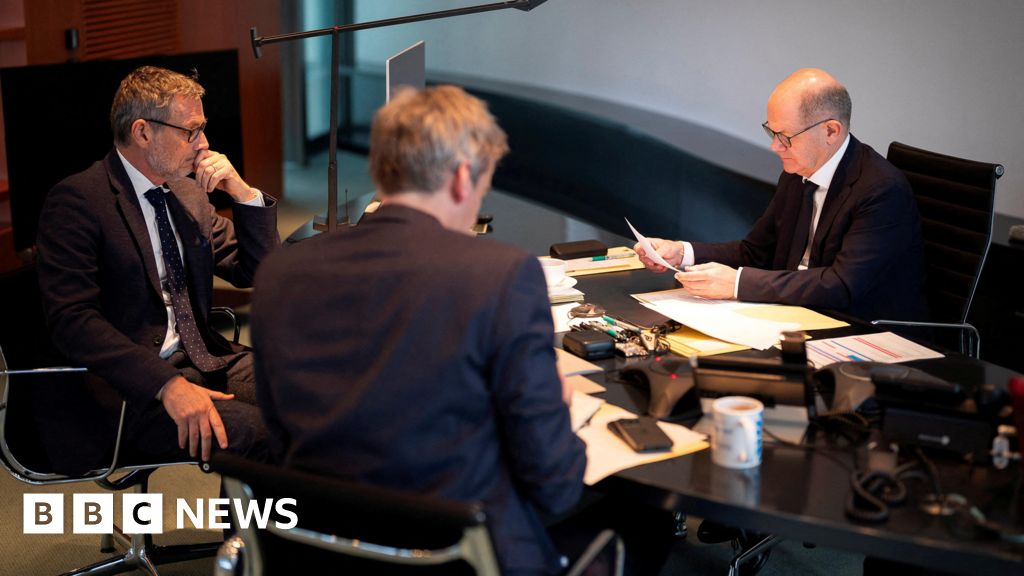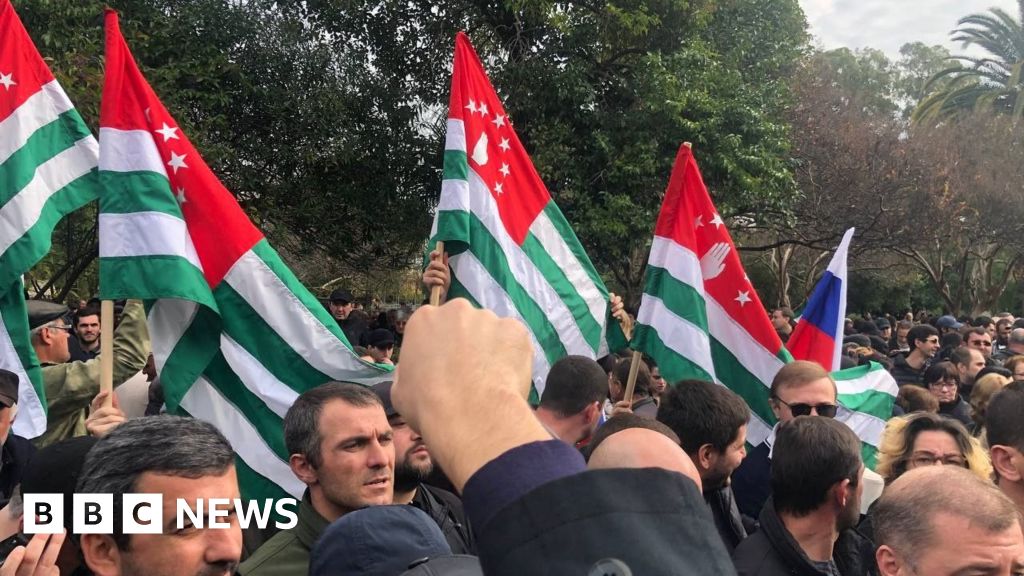ARTICLE AD BOX
By Guy Hedgecoe
Madrid
Image source, Getty Images
Image caption, "No-one without light!" - Protesters in Spain are angry about the steep increase in energy billsIsabel Medina points at her electricity bill, showing how it has jumped since the summer.
"My energy bill has increased by about 20% in the last two or three months - that's a lot," she says. "Now, with the winter coming, it's going to increase even more."
Spain is one of many European countries hit hard by a sudden spike in electricity prices in recent months. A surge in demand as countries emerged from the Covid-19 pandemic has not been matched by supply, sending prices soaring.
But Spain has specific issues that accentuate the problem.
Its relative geographical isolation means Spain has less interconnectivity than many of its European neighbours, and therefore less access to the international grid.
Isabel, a single mother of two, is taking action to cut her energy costs before the cold weather begins, by having solar panels installed on the roof of her house in the town of Parla, south of Madrid.
BBC
A lot of people I know here in the town are also installing solar panels
It's an option many Spaniards are turning to as the cost of electricity has soared - by 44% over the last year, according to the National Statistics Institute (INE).
Javier Gonzalo, CEO of solar power installation firm FotoEnergy, says demand for the company's services has increased by 50% since the beginning of September: "And that's mainly because of the increase in the cost of electricity."
It is not just access to the international grid that is causing Spain energy problems, says Massimo Maoret, associate professor of strategic management at the IESE business school.
Developments in North Africa are having an impact too.
"Much of Spain's gas comes from Algeria and there are local tensions with Algeria and Morocco as they are renegotiating contracts for the pipelines from Morocco to Spain," Prof Maoret said. "These geopolitical dynamics are very local but they definitely affect the Spanish market much more than, for instance, other markets."
Covid-19 hit Spain's economy harder than that of any other EU country, causing GDP to shrink by 10.8% in 2020.
This year, spiralling energy costs are hampering the recovery - the IMF has revised down its forecast for Spanish growth in 2021 to 5.7%.
Image source, Juan Domínguez/BBC
Image caption, Fishmonger José Díaz Redondo has seen his electricity bills doubleSome heavy industry firms have started taking drastic measures in the face of the extra costs they are facing.
Basque metal producer Sidenor announced in mid-October that it was halting production in its main factory for at least three weeks, stating that the most recent rises in energy costs "cause losses and make it impossible to maintain the current rate of production".
Chemical producer Fertiberia has taken similar action.
In Las Águilas market in southern Madrid, food retailers are also feeling the impact of the energy crisis.
José Díaz Redondo says his fishmonger stall's electricity bill almost doubled between August and September. The stall is part of the Madrileños franchise and the company has responded by cutting back on its use of refrigeration where possible and also parking some of its haulage fleet.
"We're thinking about closing four or five of our shops because they can't make a profit," he says. "You reach a point where you can't even pay the salary of the people working in the shops."
The government of Socialist Prime Minister Pedro Sánchez has presented a series of measures aimed at mitigating energy costs for families and businesses.
They include tax cuts and reclaiming some profits from electricity companies. Also, poorer families are protected from having their energy supply cut off.
As winter approaches, and almost certainly more energy demand with it, such measures will be put to the test.

 3 years ago
35
3 years ago
35









 English (US)
English (US)